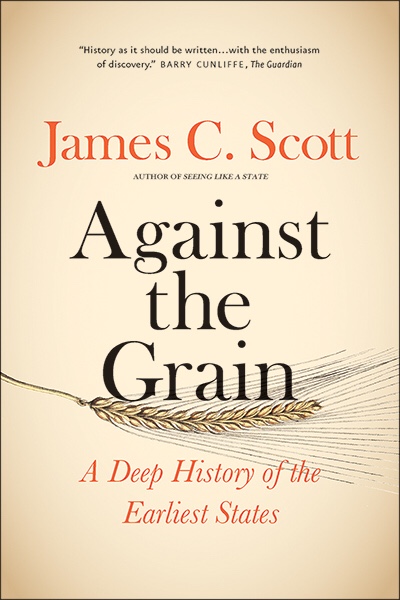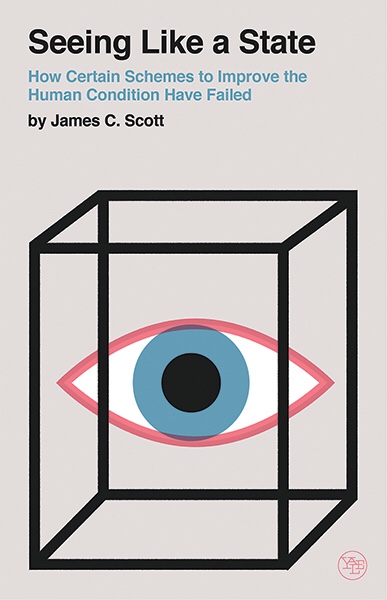A deep history of the earliest states


As the title of this interesting book rather cleverly suggests, this book runs counter to some established narratives. The title can also be read, on a slightly deeper level, as a lament in relation to how grain has helped domesticate or even enslave humanity, under the state model.
I won’t go into the detail some reviewers do elsewhere in synopsising the books contents. Suffice it to say Scott challenges the ‘ascent of civilisation’ tale – which he calls a ‘Just So story’ – that has states as the inevitable and more or less immediate next step of sedentism. The winners – the court elites of the states – have written our histories, says Scott, and have consistently denigrated the ‘barbarians’, etc.
The book ends very abruptly, with the brief and ‘melancholy’ admission that ‘the barbarians willingly dug their own grave’. I’m still digesting the masses of stuff the book conveys or argues. So I still don’t quite know what I make of it.

On the plus side, Scott is synthesising much broad and disparate information, and attempting to draw conclusions, in areas not strictly his own. I like this polymath style breadth of scope and ambition. On the negative side, his language is occasionally wilfully florid or obscure (and there’s no glossary, so a dictionary is useful), and he can and does repeat himself quite a lot.
Most of all, however, he’s playing Devil’s advocate, by suggesting we’ve been sold a pack of lies; state history has been spinning us a tale of its own inevitability and innate supremacy. I don’t know if this – the ‘facts’ as he sees them, or even exactly what motivates his stance – is good or bad?
But I certainly found the book educational, and very thought-provoking. So I would recommend it. I’ve even gone so far as buying another of his books, also about states and statecraft (Seeing Like A State).

PS – If you want a review that does give you a synopsis of this book’s contents, this is a good one!
